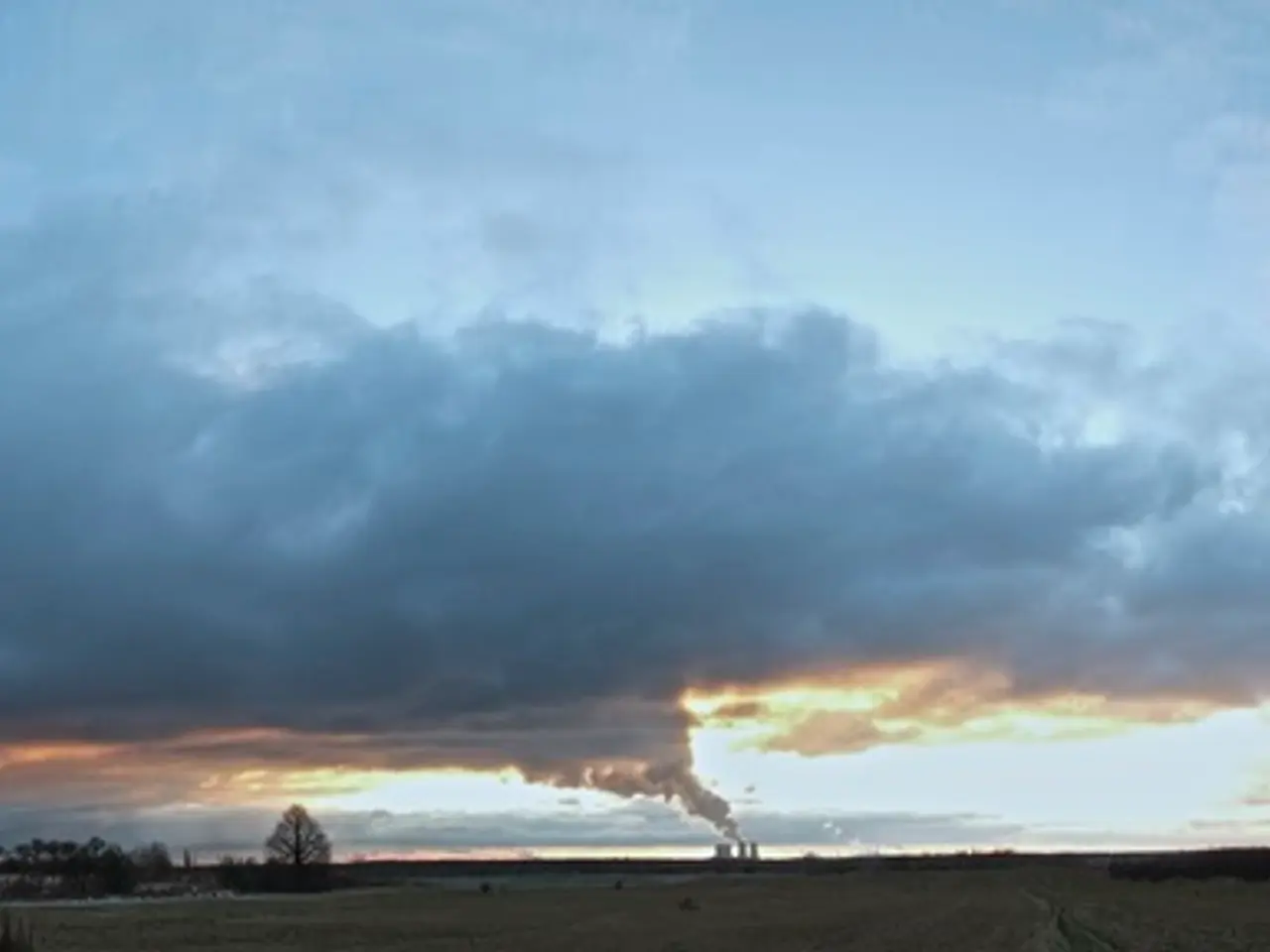Federal government agency ceasing to gather emission figures from polluting entities
The United States Environmental Protection Agency (EPA) has proposed a plan to allow certain oil and gas facilities to postpone reporting their greenhouse gas emissions until 2034. This move, according to critics, could hinder federal efforts to combat climate change, as the government would be unable to track emissions if it cannot determine their sources.
Under the 2015 Paris Accord, developed countries are required to provide annual data on their domestic emissions. The EPA's Greenhouse Gas Reporting Program, which has been in operation for the past 15 years, collects data from about 8,000 of the country's largest industrial facilities. This data is crucial for communities to determine whether local facilities are releasing air pollution that poses a threat to public health, and for private companies to demonstrate to investors that their emissions-reduction efforts are effective.
Dustin Meyer, senior vice president of policy, economics, and regulatory affairs at the American Petroleum Institute, affirmed the industry's commitment to reporting greenhouse gas emissions in a transparent and accurate manner. However, the EPA's proposal, if implemented, could save American businesses up to $2.4 billion in compliance costs over the next decade.
The proposal follows a series of steps by the Trump administration to weaken or dismantle environmental protections. In recent weeks, the White House has also directed a half-dozen agencies to thwart the country's offshore wind industry, a key source of emissions-free electricity.
Congressional Republicans have delayed a related requirement for the facilities to pay a fee on their methane emissions until 2034. Carrie Jenks, executive director of the environmental and energy law program at the Harvard Law School, stated that many large oil and gas companies have been reducing their emissions of methane.
Notably, the EPA's proposal would not eliminate emissions reporting requirements for certain oil and gas facilities such as pipelines that transport natural gas, due to requirements set by Congress as part of the 2022 Inflation Reduction Act.
The EPA will solicit public comments for 47 days after the proposal is published in the Federal Register, and the agency will finalize the proposal within the next year. Joseph Goffman, who led the EPA's office of air and radiation during the Biden administration, stated that the proposal takes away the federal government's practical and material capacity to do the basic elements of climate policymaking.
In July, the EPA moved to repeal the scientific finding that underpins the government's legal authority to combat climate change. This decision, along with the proposed delay in emissions reporting, has sparked controversy and raised concerns about the future of climate policy in the United States.
Read also:
- Russia, according to Zelensky, lacks the prowess for launching another significant offensive.
- Russia's Latest Peace Proposals for Donbas: New Diplomatic Landscape Emerges amid Alaska Summit, Potentially Opening Ceasefire Opportunities
- Amidst India's escalating climate crisis, transgender individuals continue to persevere
- Contentious Discussion Surrounding the Movie Release of "Planet of the Humans"







